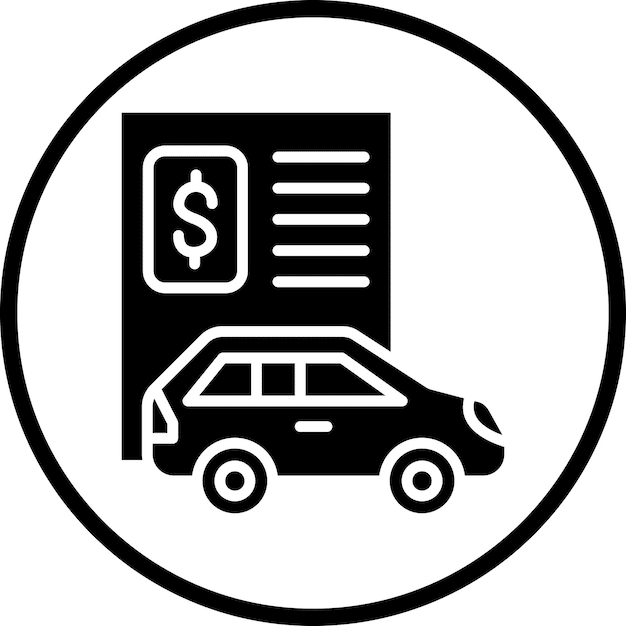Buying a Car in 2025: Avoid These 7 Hidden Fees

Buying a car in 2025 requires careful planning, and while focusing on the vehicle’s price, it’s crucial to be aware of often-overlooked fees like destination charges, documentation fees, and dealer add-ons, as these can unexpectedly inflate the total cost by up to 15%.
Buying a car in 2025: 7 Overlooked Fees That Can Increase Your Total Cost by 15% can be a thrilling experience, but it’s also one where costs can quickly spiral out of control. Beyond the sticker price, a host of hidden fees can significantly inflate your final bill. Are you prepared to navigate these potential financial pitfalls and ensure you’re getting the best possible deal?
Hidden car buying fees in 2025
When you are in the market to buy a car, understanding the true cost involves more than just the advertised price. Hidden fees can significantly increase the overall expense. Avoiding surprises requires careful research and negotiation. Here are some hidden fees you should be aware of when buying a car in 2025.
Destination Charges
Dealers often charge destination fees, regardless of how close or far you are from the factory. This can range from a few hundred to over a thousand dollars, depending on the vehicle. Understanding the destination charge could save you some significant amount of money.
Documentation Fees
Documentation fees cover the costs associated with processing paperwork, but they can vary widely from dealer to dealer. It’s essential to know the exact amount and try to negotiate if it seems too high.

- Research average doc fees in your state.
- Negotiate down if the fee exceeds the average.
- Ask for a detailed breakdown of what the fee covers.
Hidden fees are a concern because transparency isn’t always the dealership’s priority. By understanding these often overlooked charges and being willing to have open discussions with the dealer, it’ll be easier to ensure your overall ownership cost is as expected.
Tax, Title, and License Fees Explained
Beyond the initial price tag, **tax, title, and license fees** represent a significant portion of the overall cost. These fees are mandatory in almost every state and cover the costs for registering the vehicle, transferring the title, and paying state sales tax.
These fees are often non-negotiable, as they are government-mandated. However, understanding how they are calculated can help you budget more accurately for your car purchase.
Sales Tax
Sales tax will typically be a percentage of the vehicle’s sale price. The exact percentage will vary depending on your state and sometimes even your local area. If a state has a higher sales tax rate, it can significantly increase the overall cost of the car.
Title Fees
Title fees cover the cost of transferring the vehicle’s ownership from the dealer or previous owner to you. This fee is usually a fixed amount set by the state’s Department of Motor Vehicles (DMV). It is crucial to make sure the title transfer is completed correctly to legally own the car.
License Plate Fees
License Plate Fees covers the cost of issuing new license plates for your car. These fees can vary widely and are often annual. They may include registration fees, which need to be renewed periodically to keep your car legal.
Tax, title, and the license fees are inescapable costs that impact the total when buying a car in 2025. By understanding how these fees are calculated and budgeted for, you can prevent nasty surprises during the purchase.
Dealer Add-ons: Are They Worth It?
Dealer add-ons are additional products or services that dealers offer to increase their profit margins. These can range from protection plans to aesthetic upgrades. Being aware of these add-ons and assessing their real value will help you make informed decisions.
While some add-ons may seem appealing, they often come with a hefty price tag, and their benefits can be questionable. Take the time to evaluate whether they align with your needs and budget.

Extended Warranties
Extended warranties cover certain repairs beyond the manufacturer’s warranty period. Before purchasing one, review the terms and conditions. Check if the benefits justify the cost. They are a useful safety net providing peace of mind in the future.
Paint Protection
Paint protection products claim to protect your car’s paint from scratches, chips, and environmental damage. However, their effectiveness can depend on the quality of the product and the application process. It is important to do your research and read reviews before deciding.
- Research the necessity of dealer add-ons.
- Consider third-party options for better deals.
- Don’t feel pressured to buy extras you don’t need.
Understanding the common dealer add-ons and evaluating their value is essential when **buying a car in 2025**. Don’t be afraid to say no and walk away if you’re not comfortable with the added costs.
Advertising Fees and How to Spot Them
Advertising fees, also known as regional advertising fees, are charges that dealers pass on to customers to cover the cost of advertising their vehicles. These fees can often be overlooked or buried in the fine print of the sales agreement, but they can add a significant amount to the overall price.
It is possible for you to spot and negotiate these fees to save yourself some money. You should also ask the dealership for a transparent breakdown of all fees and charges.
Questionable Charges
Advertising fees are implemented to cover the expense of regional advertising efforts. The legitimacy of these fees can be uncertain, and it may be possible to challenge or negotiate it.
Review the Sales Agreement
Before finalizing the purchase, carefully review the itemized list of charges. Dealers may try to include hidden fees, inflating the total. Scrutinizing the agreement will ensure transparency in the deal.
Advertising fees can be considered a grey area charge that could often be negotiated. Consumers that understand their rights and diligently review the sales agreement are better prepared to challenge these sorts of fees and minimize costs when **buying a car in 2025**.
Market Adjustments: Paying Above MSRP
Market adjustments are additional markups that dealers add to the manufacturer’s suggested retail price (MSRP) based on the current market conditions. These adjustments can significantly increase the price, especially for high-demand or limited-availability vehicles. Being aware of market adjustments can help you make an informed decision.
Although market adjustments are not always negotiable, researching the market and being willing to explore alternatives can provide leverage to reduce costs.
Supply and Demand
If the demand for a vehicle exceeds the supply, dealers may add market adjustments to capitalize on the situation. Limited edition models, popular SUVs, and trucks are often subject to these markups.
Limited Availability
Limited availability of certain models or features can also lead to market adjustments. Dealers may justify the added cost by claiming that the vehicle is scarce or in high demand. It is important to research and do price comparing to ensure that you are not overpaying.
- Research local market conditions.
- Shop around at multiple dealerships.
- Be prepared to walk away if the price is too high.
These inflated prices can be difficult to avoid for high-demand vehicles. By being diligent and researching costs, you can work to make an informed decision, protecting yourself from overpaying when **buying a car in 2025**.
The Impact of Credit Scores on Interest Rates
Your credit score plays a crucial role in determining the interest rate you’ll receive on your car loan. A higher credit score typically translates to a lower interest rate, saving you thousands over the life of the loan. Understanding the impact of credit scores can help you make informed decisions about your financing options.
Before applying for a car loan, it’s essential to check your credit score and address any errors or discrepancies. Improving your credit score can significantly lower your interest rate.
Credit Score Tiers
Lenders typically categorize credit scores into different tiers. Each tier can affect interest rates that are offered to various buyers. Knowing your credit score tier can help you understand what to expect.
Improving Your Credit Score
There are several steps you can take to improve your credit score, such as paying bills on time, reducing credit card balances, and avoiding new credit applications. It is important to build your credit before buying a car in 2025.
Your credit score affects the interest rate. Maintaining a high credit score not only saves you money but also gives you leverage when negotiating with the lenders. Staying consistent and responsible is a must when it comes to protecting your credit score.
Negotiating Tactics to Reduce Overall Costs
Negotiation can significantly impact the overall cost of **buying a car in 2025**. By knowing what fees can be negotiated, and some effective tactics will ensure that you get the best price possible.
Approaching the negotiation table prepared and informed can save you money. Don’t hesitate to discuss and challenge any fees that seem unreasonable or unnecessary.
Researching Market Value
Before starting negotiations, research the market value of the car you want to buy. Use online resources, like Kelley Blue Book, to understand the fair market price. This will give you a solid foundation for your negotiations.
Shop Around and Compare Offers
Get quotes from multiple dealerships and compare them. Dealers are more likely to offer a better deal when they know you’re considering offers from competitors. Do not be afraid to pit dealerships against one another.
- Negotiate the out-the-door price, which includes all fees and taxes.
- Question any fees that seem unreasonable or unnecessary.
- Be prepared to walk away if the dealer is unwilling to negotiate.
It’s possible to navigate the car-buying process effectively and avoid overpaying for the vehicle. By understanding the fees involved, you can protect your money and budget appropriately.
| Key Point | Brief Description |
|---|---|
| 💰 Hidden Fees | Unexpected costs like destination charges and documentation fees. |
| 🛡️ Dealer Add-ons | Optional extras, such as extended warranties, that inflate the price. |
| 📊 Credit Score | Impacts interest rates; improving it saves money on loans. |
| 🤝 Negotiation | Essential to lower costs; research and compare offers. |
FAQ Section
▼
Common hidden fees include destination charges, documentation fees, dealer add-ons (like paint protection and extended warranties), and advertising fees. These can collectively add a significant amount to the final price.
▼
Research the value of each add-on and compare prices from third-party providers. Be firm in declining add-ons you don’t need. Dealers often include them to increase profits, so don’t hesitate to push back.
▼
Your credit score directly affects the interest rate you receive on your car loan. A higher score can result in a lower interest rate, saving you money over the loan term and making the car more affordable.
▼
Market adjustments are markups added to the MSRP due to high demand or limited supply. To avoid them, shop around at multiple dealerships, negotiate assertively, and be willing to wait or consider different models if possible.
▼
Carefully review the sales agreement for any unexpected charges labeled as advertising or regional advertising fees. Question these fees and ask for a detailed explanation. Negotiate them down or request them to be removed entirely.
Conclusion
Successfully buying a car in 2025 involves more than just picking the right model; it requires vigilance and preparation. Being informed about potential hidden fees, understanding the impact of your credit score, and honing your negotiation skills are crucial steps to ensure you drive away with a fair deal. Keep these strategies in mind to safeguard your budget and maximize your satisfaction with your new vehicle.





